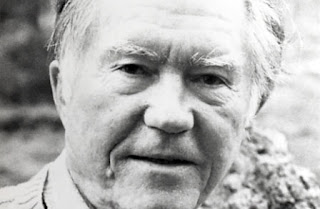William Stafford was an excellent poet. This morning I found a gem in his book The Way It Is: New and Selected Poems (Graywolf Press). This poem speaks to the wily nature of writing. The source cannot be found with a map, although we often want a map or suspect that a map can be drawn by experts.
A Course in Creative Writing
They want a wilderness with a map--
but how about errors that give a new start?
or leaves that are edging into the light?--
or the many places a road can't find?
Maybe there's a land where you have to sing
to explain anything: you blow a little whistle
just right and the next tree you meet is itself.
(And many a tree is not there yet.)
Things come along toward you when you walk.
You go along singing a song that says
where you are going becomes its own
because you start. You blow a little whistle--
And a world begins under the map.
*
Stafford points to the value of errors. Mistakes offer opportunities or a change in direction. Leaves emerge. These are the new growth or the new departures. A place that a road can't find is a very good place to write. "Maybe there's a land you have to sing/ to explain anything..." The impulse to sing: a lullaby, a celebration, a joy, or an occasion for mourning.
The word whistle here is an interesting sound/image. It's a call or a signal. It's a personal tune. "...you blow a little whistle/ just right and the next tree you meet is itself. (And many a tree is not there yet)." I like this. The tree has an is-ness. It is not a reflection of the writer, an interpretation, or a metaphor. It is only itself. "Things come along toward you when you walk....a world begins under the map." The creative work emerges in the act of writing or creating, not before. This poem is a lesson in paying attention, listening, and believing the work itself will lead you into a new world.
In his essay "A Way of Writing," Stafford said:
So, receptive, careless of failure, I spin out things on the page. And a wonderful freedom comes. If something occurs to me, it is all right to accept it. It has one justification: it occurs to me. No one else can guide me. I must follow my own weak, wandering, diffident impulses.


No comments:
Post a Comment